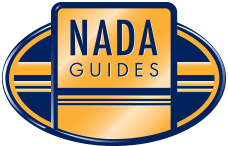Embarking on the journey of RV ownership can be thrilling, presenting opportunities for adventure and freedom on the open road. However, for many first-time owners, the reality often comes with unexpected challenges and regrets. Here are seven surprising pitfalls that every beginner should consider before diving into RV ownership.
1. Driving Challenges
One of the most daunting aspects of RV ownership is the driving experience. Unlike standard vehicles, RVs are larger, heavier, and less maneuverable, making them potentially nerve-wracking to drive. Navigating tight city streets, dealing with construction zones, and managing steep mountainous terrains can transform the joy of a road trip into a stressful scenario. Difficult driving conditions, such as windy weather or climbing grades like those in the Rocky Mountains, can lead to accidents or mechanical failures, leaving new RV owners feeling apprehensive and regretful about their decision.
2. Impact on Family Dynamics
RV living can be a double-edged sword for families. While sharing close quarters can create lasting memories and strengthen family bonds, it can also amplify tensions. The lack of personal space may lead to disagreements over schedules, privacy, and daily routines. For families who aren’t fully on board with the RV lifestyle, the challenges of coexistence can overshadow the adventure, leading to regrets about the commitment to RV life.
3. Unexpected Repairs
Despite diligent maintenance, RV owners often find themselves confronting unforeseen repairs that can arise at the most inconvenient times. From engine troubles to electrical failures, these issues may not only disrupt travel plans but can also be costly and time-consuming. The specialized nature of RV repairs means that owners may face long waits for appointments and high bills that quickly accumulate. This unpredictability can lead to financial stress and cause many to reconsider their choice of RV ownership.
4. Legal Restrictions and Regulations
Navigating the complex landscape of RV-related laws and regulations is essential but often overlooked by first-time buyers. Zoning laws and parking restrictions can limit where RVs can be stored and parked, potentially impacting travel plans. Additionally, the evolving legislation in various states can pose challenges for RV owners, with new rules emerging that may affect where and how one can camp. Violating these regulations can result in fines or towing, adding to the overall stress of RV ownership.
5. Financial Implications
The financial burden of RV ownership extends far beyond the initial purchase price. First-time buyers must consider ongoing expenses such as registration fees, insurance, and maintenance costs, which can quickly add up. Many owners find that they cannot bundle RV insurance with their home policy, leading to higher premiums. Moreover, campgrounds are becoming increasingly expensive, further straining a budget that many likely did not anticipate. Understanding the total cost of owning an RV is vital to prevent financial regret.
6. Maintenance Costs
Managing an RV comes with yearly maintenance costs that can catch inexperienced owners off-guard. Issues such as generator upkeep, tire maintenance, and basic service can easily escalate these costs. Some owners report that their annual expenditures can exceed $5,000 just for upkeep, excluding travel expenses. Failing to budget adequately for these ongoing costs may trigger regret for those who assumed the financial commitment would be lighter.
7. Comfort and Convenience Compromises
Finally, many new RV owners might find that the compact, budget-friendly design of most RVs significantly compromises comfort. Limited space can feel more constrictive than cozy, daunting even the most enthusiastic adventurers. Temperature control is often inadequate, making it difficult to maintain a comfortable climate inside the RV during extreme weather. For those accustomed to the luxuries of a full-sized home, transitioning to the confined quarters of an RV may evoke substantial disappointment.
Conclusion
While RV ownership can be a rewarding adventure filled with exploration and fun, it is essential for first-time buyers to be aware of the potential pitfalls. By recognizing these challenges, beginners can better prepare themselves and their families for a fulfilling RV lifestyle that minimizes regrets and maximizes enjoyment. Comprehensive preparation and a realistic understanding of the complexities involved in RV ownership can make all the difference in ensuring that the journey remains one of excitement and happiness.
NoCredit Campers specializes in providing affordable RV and camper financing solutions for customers with all credit backgrounds. Our mission is to help everyone experience the joy of RV ownership, regardless of their credit history. With a wide selection of campers, travel trailers, and motorhomes available through flexible rent-to-own and buy-here-pay-here options, we make your camping dreams a reality. Visit us at https://nocreditcampers.com to explore our inventory and learn more about our easy financing options. Adventure awaits – let NoCredit Campers be your gateway to the great outdoors!














